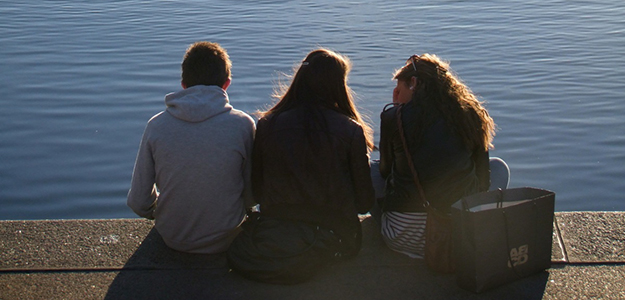
We all handle stress, sadness and troubling times in unique ways. These methods are called our coping mechanisms, and while some can be helpful in our recovery process, others can be quite damaging. How do you know what kind of coping mechanisms your teen is using and whether or not they are beneficial? Here are some clues as to what to look for.
1. Denial and Repression

One very basic form of coping—and one that can ultimately permeate throughout all other forms—is denial or repression. Put simply, a person in denial refuses to acknowledge or even believe that an incident has occurred so that they don’t have to address their negative feelings. Alternatively, people might acknowledge that a painful circumstance has taken place but will repress their feelings around it, impeding their chances for healthy grieving or reflection.
2. Isolation

Feeling negatively about an experience or situation can be difficult to handle or even embarrassing for some teens. Therefore, they might choose to isolate themselves as a way of avoiding their emotions. You may recognize this coping mechanism if your teen cuts ties with friends, drops out of extracurriculars or suddenly dislikes activities they used to enjoy.
3. Acting Out

For many teens, acting out can sometimes be one of the most obvious coping mechanisms. It can also be the most frustrating and hurtful for those around. A person acts out when they feel unable to express their emotions in a healthy way. In other words, rather than sharing how they feel, a teen might yell or become violent. They might also choose to engage in risky behaviors, such as taking drugs, shoplifting, or engaging in unsafe sex. All of these actions deflect from the emotions they are feeling.
4. Judgemental Behavior

On the other end of the spectrum, teens who have experienced a painful event might seek to regain control of it by becoming rigidly principled. While at first this might almost seem positive, it can lead to extreme self-criticism, self-hatred, inflexibility and a harsh view of others as they uphold clear cut rules and logic over people and feelings.
5. Physical Restraints

Some teens might focus their coping strategies on their own bodies in an effort to feel in control of their lives. This could lead to developing negative eating habits such as over or under-eating or creating harsh exercise regimes. Once again, this is a very tangible way for a teen to seek control when they might otherwise feel that they have lost it.
6. Positive Coping Mechanisms

Are all coping mechanisms negative? Definitely not! We all need to find positive ways to deal with difficult and hurtful situations when they arise. Encourage your teen to develop positive coping strategies, which include finding an artistic outlet, meditation, healthy exercise, talking openly about their feelings and seeking support from a therapist.
Feature Image: The Hamster Factor


